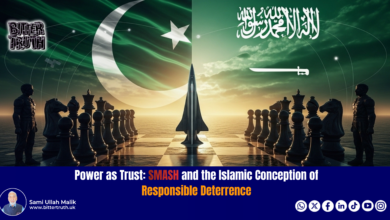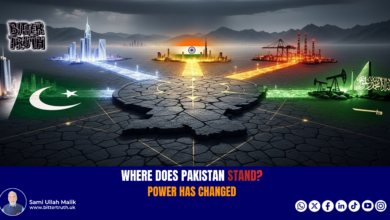The Impact of the Arab Spring and the Current Political Situation in Syria
The Division of Syria and the Current Political Game in the Region
In line with the saying, “Destiny leads one to their inevitable fate,” Bashar al-Assad appears to have been metaphorically adopted by Russian President Vladimir Putin. For the first time, instead of issuing a statement from the Syrian presidential palace, a message attributed to Assad was published via a Telegram account. The message claimed that he had no intention of leaving Syria but was forced to do so after his army retreated. However, it remains unclear who controls this account or whether Assad himself authored the statement.
The message attributed to Assad was shared in both English and Arabic, detailing events on December 8, when he was reportedly stranded at a Russian military base. Notably, on December 9, rebel factions took control of the capital Damascus, ending Bashar al-Assad’s 24-year-long rule.
The statement claims that, as Damascus fell to the rebels, Assad was present at a Russian military base in Latakia to “oversee military operations.” By that point, however, the Syrian army had already withdrawn from its positions. The Russian airbase in Hmeimim was also reportedly under “intense drone attacks,” which led Russia to decide to evacuate him to Moscow.
“When there was no longer any way to exit the airport,” the statement reads, “Russia requested that the base be evacuated immediately on Sunday evening, December 8, and that everyone present be transported to Russia. This occurred a day after Damascus fell to rebel control, leaving all state institutions paralysed as the Syrian army abandoned its positions.”
The statement further notes, “During these events, I never once considered resigning from the presidency or seeking asylum, nor was such an offer made to me. However, once the state fell into the hands of terrorists and my capacity to play a meaningful role was diminished, my presence there became pointless.”
The question remains: if Bashar al-Assad fled to Russia with his family, was his claim of “overseeing military operations” credible? Would any rational person accept the excuse that he took his family along for military supervision? It appears more likely that Assad, well aware of the consequences of his tyranny, was looting Syria’s treasury in preparation for his escape.
When rebel forces, led by Hay’at Tahrir al-Sham, captured Syrian cities and provinces within just 12 days, Assad was nowhere to be seen. Speculations about his departure had already begun circulating. Even as rebels entered Damascus, Assad’s own prime minister was reportedly unable to contact him.
Early Sunday morning, as opposition forces entered Damascus without encountering resistance, Hay’at Tahrir al-Sham and its allies declared, “The tyrant Bashar al-Assad has fled Syria.” During this time, two senior Syrian military officers confirmed that Assad had boarded a Syrian Air flight and departed from Damascus Airport on Sunday morning.
The simplest answer to this development lies in Russia’s role. Since the civil war began in 2011, Russia emerged as Assad’s primary ally, maintaining two military bases in Syria. In 2015, Russian airstrikes in support of Assad decisively turned the tide of the war in his favour, leading to a series of defeats for opposition groups. Following this, Assad’s regime broke all records of brutality in its campaign to eliminate dissent.
According to a UK-based group, Russian operations over nine years resulted in the deaths of over 21,000 people, including 8,700 civilians. However, Russia’s focus on Ukraine had divided its attention, leaving it either unwilling or incapable of countering rebel advances against Assad in late November.
Assad’s deep ties with Russia, particularly Moscow, are no secret. A 2019 Financial Times investigation revealed that during the Syrian civil war, Assad’s family purchased 18 luxurious apartments in Moscow to siphon millions of dollars out of the country.
Last week, a Russian newspaper reported that Assad’s 22-year-old son, Hafez al-Assad, is currently pursuing a PhD in Moscow. Amid the chaos in Damascus, Russian state television reported that Russian officials were in talks with Syria’s armed opposition to ensure the safety of the two Russian military bases and diplomatic staff in the country.
Meanwhile, Syrian rebel factions are in the process of forming an interim government. The most powerful group, Hay’at Tahrir al-Sham, initially emerged in 2011 under the name Jabhat al-Nusra, announcing its affiliation with al-Qaeda the same year. However, the organisation severed ties with al-Qaeda in 2016, joining forces with other groups to form Hay’at Tahrir al-Sham.
Despite this rebranding, the United Nations, the United States, the United Kingdom, and several other nations continue to classify the group as a terrorist organisation. The group’s leader, Ahmed al-Sharaa (Abu Muhammad al-Julani), has declared that they intend to show tolerance towards other religious groups and communities in Syria. However, the group’s jihadi past has led some to view these promises with suspicion.
On Sunday, UN Special Envoy Geir Pedersen met with Ahmed al-Sharaa, emphasising that “genuine” political change is essential for Syria’s future.
Qatar Resumes Diplomatic Activities in Syria After 13 Years
Thirteen years after closing its embassy in Syria, Qatar has sent a delegation to Damascus to restart diplomatic activities in the country. While Western nations have not announced plans to reopen embassies in Syria, the United States and the United Kingdom have confirmed contact with Hay’at Tahrir al-Sham (HTS) in the past two days. However, the British government clarified that despite these “diplomatic contacts,” HTS remains classified as a terrorist organisation.
On the other hand, the European Union’s foreign policy chief, Kaja Kallas, stated on Monday that Russia and Iran should have “no role in Syria’s future.”
Direct Contact with Hay’at Tahrir al-Sham
US Secretary of State Antony Blinken has confirmed direct contact with HTS, the group now controlling Syria after the fall of former President Bashar al-Assad’s regime. This marks the first such interaction between the US and HTS. Notably, HTS remains designated as a terrorist organisation by the US, and its removal from this list has not yet been discussed. Blinken stated during a briefing that the contact primarily concerned missing American journalist Austin Tice.
Blinken’s confirmation came after a meeting in Jordan involving representatives from several Arab nations, Turkey, and Europe to discuss Syria’s future. The officials present agreed to support a peaceful transition of power in Syria. Jordan’s foreign minister remarked that regional countries do not want to see Syria descend further into chaos.
Following the meeting, a joint statement was issued, supporting the establishment of an inclusive government in Syria that respects minority rights and prevents terrorist groups from using Syrian territory for their activities.
The Push for a New Syrian Government
Recent dramatic changes in Syria have shifted the focus of both internal and external discussions to the importance of establishing a new government representing the Syrian people. It is worth noting that Hay’at Tahrir al-Sham was not represented at the Jordan meeting. Iraqi Foreign Minister Fuad Hussein voiced concerns about Syria’s future, emphasising that regional powers do not want Syria to face a situation similar to Libya’s post-revolution chaos.
Libya’s experience serves as a cautionary tale. Colonel Muammar Gaddafi, the Arab world’s longest-serving leader, was overthrown during the wave of popular uprisings that began in Tunisia in 2011. The so-called “Arab Spring,” while touted as a movement for freedom, brought destruction to several nations. Libya, once a stable and prosperous state, was thrown into turmoil by foreign interventions seeking to install a compliant regime. Today, years after Gaddafi’s fall, Libya remains in a state of chaos—a testament to the devastation inflicted by these powers.
Reforming Syrian Institutions
At the Jordan meeting, Turkish Foreign Minister Hakan Fidan emphasised the importance of preserving and reforming Syria’s institutions. “During the transition of power in Syria, we must prevent terrorists from exploiting the situation. We need to learn from past mistakes and coordinate our actions,” he said.
While no Syrian representative attended the meeting, it is notable that traditional allies of Bashar al-Assad, Iran and Russia, were also absent. Foreign ministers from eight Arab countries stated their commitment to ensuring Syria remains united and not divided along sectarian lines.
Israeli Actions in the Golan Heights
In the wake of Assad’s fall, Israel has announced plans to expand Jewish settlements in the Golan Heights. Israeli Prime Minister Benjamin Netanyahu stated that this step is necessary to protect Israel from rebel attacks amid the opening of a new front on the Syrian border.
It is worth recalling that the Golan Heights were occupied by Israel during the 1967 war, and international law considers this occupation illegal. Netanyahu has expressed his desire to double the Jewish population in the region. Days ago, the Israeli military seized key positions in Syria’s border areas, including a demilitarised buffer zone in the Golan Heights.
Netanyahu also claimed that Israel has no interest in a conflict with Syria but will shape its policies based on the realities on the ground. However, former Israeli Prime Minister Ehud Olmert criticised Netanyahu’s plans, questioning their rationale. “If we don’t want a conflict with Syria and hope to avoid clashes with the rebels taking control, then why are we doing the exact opposite?” Olmert remarked.
This development comes at a time when Syria’s new leader, Abu Muhammad al-Jolani, condemned “Israeli attacks on Syria” during an interview with Syrian TV, stating that “such attacks could escalate tensions in the region. Syria does not seek conflict with its neighbours. After prolonged war, the situation does not permit any new disputes.” According to the UK-based Syrian Observatory for Human Rights, nearly 450 airstrikes have been conducted in the country since December 8. It is worth noting that the Golan Heights hosts 30 Israeli settlements with a population of around 20,000, which are deemed illegal under international law. Additionally, the region is home to about 20,000 Syrians who continue to reside there despite Israeli occupation.
Meanwhile, Israel has carried out dozens more airstrikes on Syria, drawing condemnation from regional countries. These attacks have been confirmed by war monitors. Israel has previously claimed that such operations aim to eliminate “strategic threats” that could pose a danger to its security. The United Nations Secretary-General has also expressed deep concern over the hundreds of Israeli airstrikes in Syria.
The fall of Bashar al-Assad’s regime marks the end of a 13-year-long civil war. The conflict began over a decade ago when Assad responded with force to pro-democracy protests. The war has resulted in the deaths of over 500,000 people and displaced millions. Throughout this period, Syria became a battleground for international powers and their proxy groups. Now, those nations that were involved in Syria’s civil war will inevitably have a significant role in shaping its future.
For the Syrian people to sustain the freedom they have recently achieved, the new leadership must foster complete unity within the country and internationally. Additionally, other Muslim countries in the region must take tangible steps to counteract Israel and its allies’ possible strategies. Otherwise, the “Arab Spring’s Specter” is advancing at full speed to engulf them. It is imperative for the Muslim Ummah to rise above individual interests, deploy all resources, demonstrate solidarity, and prevent Syria’s division. Recognizing the current realities on the ground, Muslim nations must actively contribute to establishing peace and stability in Syria.






